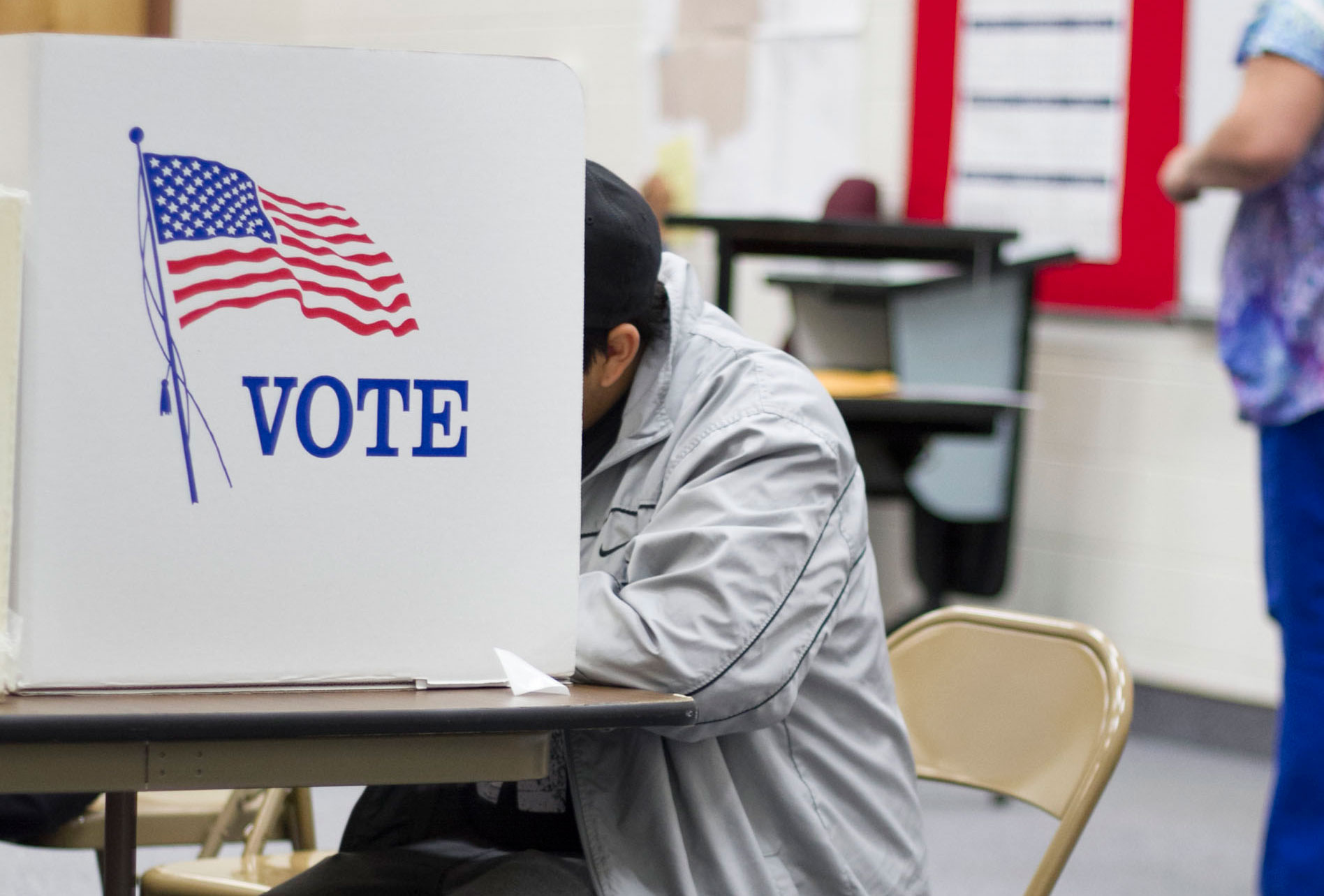WASHINGTON — Convicted felons have long been unwelcome on Election Day, as 34 states block them from voting either permanently or for varying times after they leave prison. But ex-felons who are on parole or probation will be able to vote on Tuesday in Maryland’s primaries for the first time.
Nationally, an estimated 5.85 million Americans cannot vote due to state laws that disenfranchise people with felony convictions. Kentucky, Florida and Iowa impose the strictest regulations on ex-felons, disqualifying them for life unless they are granted an individual pardon. In seven more states, the severity of the crime dictates whether convicted felons lose their vote permanently.
Until today, Virginia also denied the vote to all convicted felons. Under Gov. Terry McAuliffe’s order, the state has become the 20th to restore voting rights to 206,000 people who have completed their entire sentence, including parole or probation.
In Maryland, the 14th state to allow ex-felons to vote if they have left prison but remain on supervised release, the change in the law means about 40,000 ex-felons are now eligible to vote. There are almost 4 million registered voters statewide.
Voting not only helps integrate ex-offenders back into their communities, say advocates and Maryland lawmakers who voted for the bill. They said it forces elected officials to directly address their needs.
“This constituency is just simply not going to get attention if they are viewed as not part of the electorate that elected officials have to answer to,” said Jane Henderson, executive director of grassroots organization Communities United.
And they have issues that are more likely to be addressed if they are seen as a voting constituency, said Maryland state Del. Cory McCray, D-Baltimore City, who helped push through the legislation.
“You’ll see the same places that have high concentrations of people on parole or probation are the same places that have food deserts,” McCray said. “They have high poverty, they have high unemployment, they have housing challenges, and the reality is that the way you solve those problems is through policy.”
Julie Ebenstein, staff attorney with the American Civil Liberties Union Voting Rights Project, said taking away someone’s voting rights is wrongly seen as regulatory rather than punitive. The only time someone should be excluded from voting is if the person has committed a felony relating specifically to casting a ballot, she said.
“The idea that the loss of voting rights and the exclusion from the democratic process is an additional element of punishment is faulty in a lot of ways,” she said.
But former felons who do gain the right to vote at some point, still have a lot of impediments to voting — among them a lack of education on how the voting process works and an enduring feeling of disenfranchisement, Henderson and other advocates for ex-felons’ rights said.
“I’ve always said that passing the law was going to be easier than engaging that whole new electorate, because people feel it doesn’t matter,” said Henderson. “There’s a lot of disillusionment. Changing that perspective, and making people feel like they have power is really an important part of transforming communities.”
There remains a lot of political and ideological opposition to the idea, however. In 2007, Maryland lawmakers allowed individuals who had completed all parts of their sentences to register to vote. Last year, the legislators expanded the right to those who had left prison but were completing probation or parole. Gov. Larry Hogan vetoed the bill, but legislators overrode his veto.
Allowing convicted felons to vote is unfair to law-abiding citizens who have earned the privilege to vote, said Del. Neil Parrott, R-Washington County, who opposed the law change.
While advocates are doubtful states will join Maine and Vermont in permitting incarcerated felons to vote any time soon, activity is increasing in places like Kentucky and Iowa, where the ACLU is currently involved in a lawsuit challenging the state’s disenfranchisement laws.
While there is no way to predict whether expanding voting rights to ex-felons will have a major impact on either party on Tuesday or in future elections, restoring voting rights will affect the political, democratic process as a whole, say advocates and lawmakers.
“I think politicians are realizing that integrating people into the process is better than putting up a block wall… or some type of barrier for people to join the process,” said McCray. “I think that does have a major political impact.”
Photo at top: A ballot booth at the polling station in Wyoming Indian High School’s Tech Center in Ethete, Wyoming, 2012. Lindsay D’Addato/Flickr


